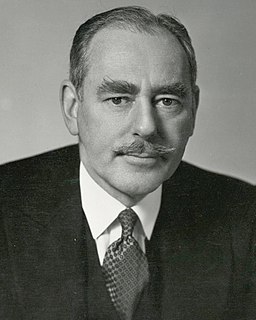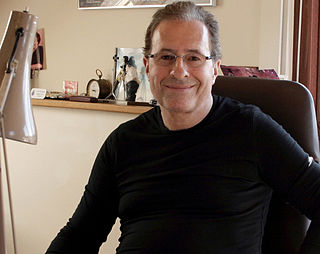Top 254 Churchill Quotes & Sayings - Page 5
Explore popular Churchill quotes.
Last updated on November 9, 2024.
History's villains are more easily recognized in retrospect. In an article published in 1935 and reprinted in 1937, Winston Churchill expressed a curious ambivalence towards the German chancellor prior to the outbreak of war: We cannot tell whether Hitler will be the man who will once again let loose upon the world another war in which civilization will irretrievably succumb, or whether he will go down in history as the man who restored honour and peace of mind to the great Germanic nation. . . .
The United States are a miracle: the division between two states is sometimes a river or a mountain, and sometimes it's a straight line. But nobody says, "That tree really belongs in South Carolina. I shan't do anything about it now, I'll get it back later." I shall go after I am here to London and after that to Potsdam, where Comrade Stalin, Mr Churchill and Harry Truman divided up Europe; and what we see now is the result of that. The Americans would have accepted it. But Europeans don't accept anything.
You look at the Russian side: They're defending their territory from the beginning. They move west to destroy the Nazis. And they take out the guts of the German war machine per Winston Churchill, who said that they won the war. From the beginning, we were hostile to the guys who had saved how many American lives by their repulsion of the Nazis? I think the Americans lost 400,000 in the whole war. And the Americans knew it at the time. They gave Joseph Stalin credit. He was the man of the year, cover of Life magazine in 1943; he was a hero.
I think Churchill is right, the only thing to be said for democracy is that there is nothing else that's any better, and therefore he used to say, Tyranny tempered by assassination, but lots of assassination. People say, If the Congress were more representative of the people it would be better. I say the Congress is too damn representative. It's just as stupid as the people are; just as uneducated, just as dumb, just as selfish.
As Churchill said about the Great War, and he said this in about 1924, that it was the first war in which man realized that he could obliterate himself completely. If you consider the way the whole world was impacted, 18 million people worldwide died, and that is taking into account military and civilian deaths: 18 million people. And it was the whole world, if you will. You know, many of those trenches were dug by Chinese. There are photographs of Chinese looking like they just came from China, with their hats and so on, digging the trenches, right from the beginning.
Life is very tough, you know. You sit at a dinner party and talk to the person on your right or your left, you're going to hear something terribly sad, or horrible, or awful. And you just laugh at everything. I think it was Winston Churchill who said something like, any time you get someone to laugh, you're giving them a little vacation. It's so true. You laugh for one second, you're happy. I find in negotiations, everybody's sitting around looking so serious, I say something funny and it breaks the ice. And it's like, now we can get through this.
I believe that our world needs an instrument of global action as never before in history. I believe that the United Nations is the instrument for securing peace and for giving people everywhere, in poorer countries as in richer, a real stake in that peace by promoting development and encouraging cooperation. But the United Nations is only an instrument, an actor in need of props and cues from its directors, And so I will paraphrase Winston Churchill: Give us the tools-the trust, the authority and the means-and we will do the job.
I am encouraged as I look at some of those who have listened to their "different drum": Einstein was hopeless at school math and commented wryly on his inadequacy in human relations. Winston Churchill was an abysmal failure in his early school years. Byron, that revolutionary student, had to compensate for a club foot; Demosthenes for a stutter; and Homer was blind. Socrates couldn't manage his wife, and infuriated his countrymen. And what about Jesus, if we need an ultimate example of failure with one's peers? Or an ultimate example of love?
Mahatma Gandhi I would say had perhaps a greater spiritual quality whereas Winston Churchill had besides the courage, ability and above everything else, the ability to put into words what his people felt so that he could always lead them. And my own husband I think had great patience, which you need in a democracy because you have to come to do fundamental things, you have to have the patience to have people educated; and then I think he had a deep interest in human beings as human beings.
It is only possible to succeed at second-rate pursuits - like becoming a millionaire or a prime minister, winning a war, seducing beautiful women, flying through the stratosphere, or landing on the moon. First-rate pursuits - involving, as they must, trying to understand what life is about and trying to convey that understanding - inevitably result in a sense of failure. A Napoleon, a Churchill, or a Roosevelt can feel himself to be successful, but never a Socrates, a Pascal, or a Blake. Understanding is forever unattainable.
Stalin was experimenting with telepathy in the 1930's. Winston Churchill had a paranormal office, trying to get people to travel out of their bodies and see behind enemy lines in the Second World War. And the Pentagon... The X-Files is based on a real department in the Pentagon, that's still there now. Pretty much every government, probably as far back in time as we can go, has one. And the police will quite often - and when I say often, I mean often - they will go to mediums if all else fails in the enquiry.
Let the children have their night of fun and laughter. Let the gifts of Father Christmas delight their play. Let us grown-ups share to the full in their unstinted pleasures before we turn again to the stern task and the formidable years that lie before us, resolved that, by our sacrifice and daring, these same children shall not be robbed of their inheritance or denied their right to live in a free and decent world." Winston Churchill Christmas Eve Message, 1941 as printed in "In the Dark Streets Shineth.
But I think the American people expect more from us than cries of indignation and attack. The times are too grave, the challenge too urgent, and the stakes too high to permit the customary passions of political debate. We are not here to curse the darkness, but to light the candle that can guide us through that darkness to a safe and sane future. As Winston Churchill said on taking office some twenty years ago: if we open a quarrel between the present and the past, we shall be in danger of losing the future.
What's somewhat puzzling is that Churchill himself knew what the reaction would be to any sort of aerial attack on cities, because in 1938 he said that in a future war British cities would be attacked by bombing, and that the response would be that all men would want to join the fight because they would be so incensed by this cowardly manner of attack. Which is a very natural response: when something drops on you from the air and blows up a bunch of buildings and kills people in their sleep, the reaction is going to be rage, confusion, and a search for something to destroy in retaliation.













